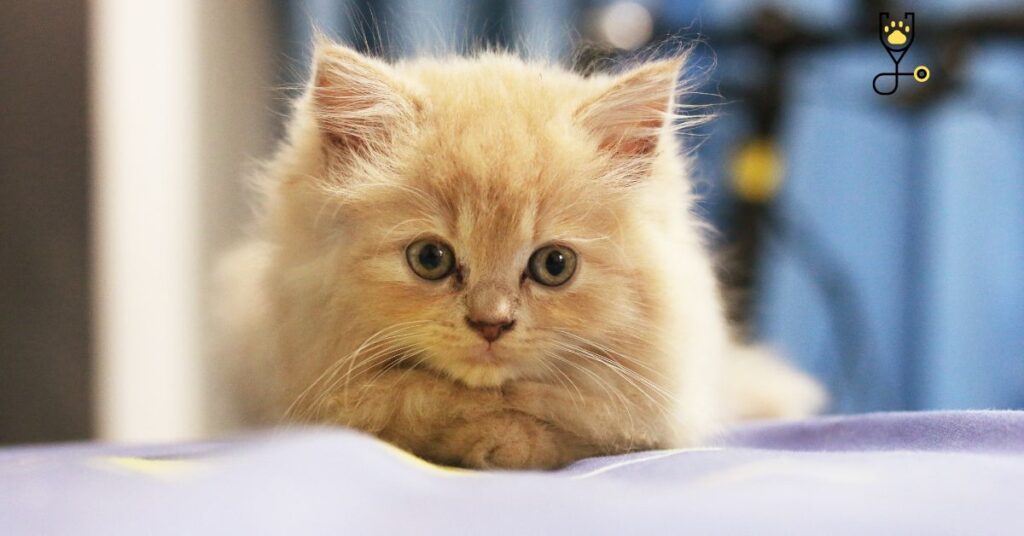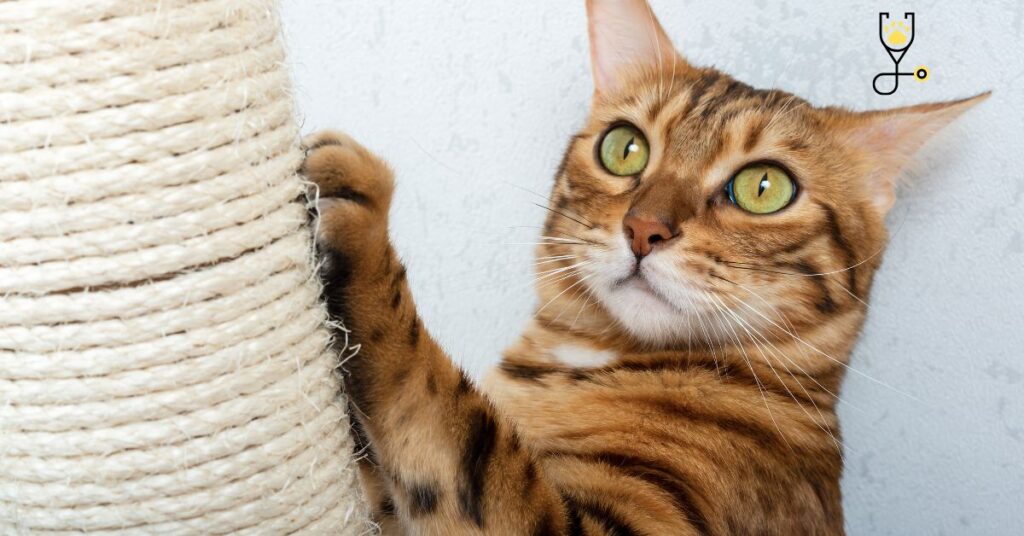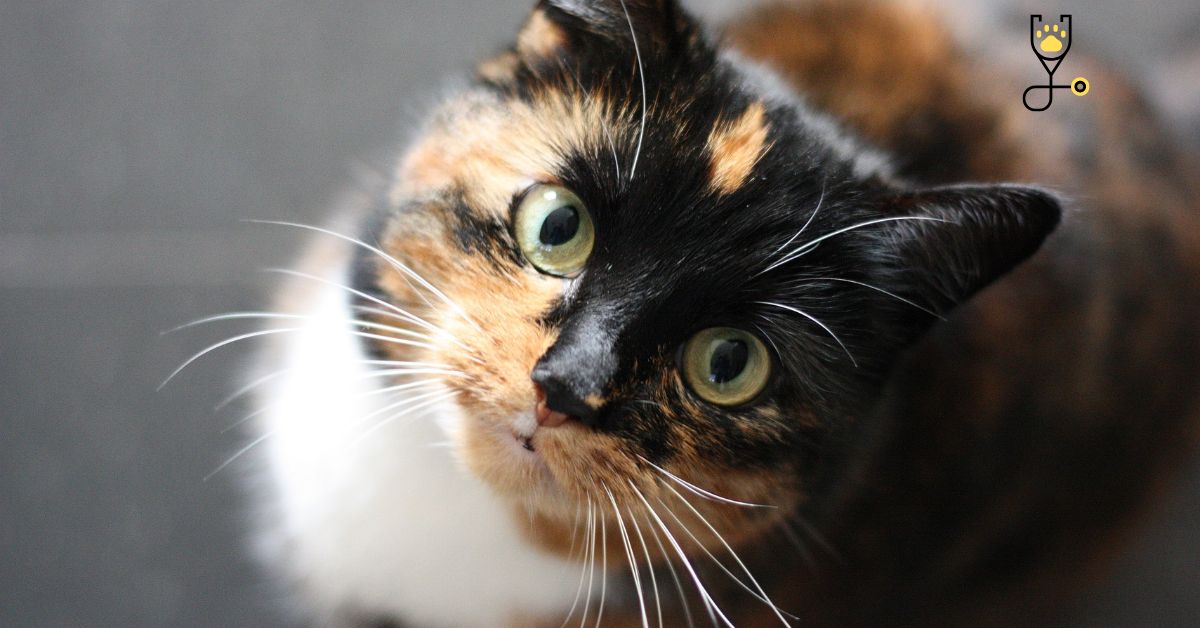Dry skin in cats can be caused by a variety of things, including diet and environmental factors. In some cases, it may require veterinary treatment, but there are also many things you can do at home to help your cat maintain healthy skin. Read on for tips on how to identify and treat dry skin in cats, as well as information on how to prevent it from happening in the first place.
How to predict if your cat will develop dry skin

Here you have 7 ways to tell if your cat will develop dry skin:
1. If you notice that your cat is licking or scratching more than usual, it could be a sign of dry skin.
2. Cats with dry skin may also have dandruff, which is flakes of dead skin that fall off when they groom themselves.
3. The fur of a cat with dry skin may look dull and lifeless, or it may be matted and clumped together.
4. Dry skin can cause the skin to become irritated and inflamed, leading to redness, swelling, and itchiness.
5. If your cat has any open sores or bald spots on its skin, this could be a sign of severely dry skin.
6. Cats with dry skin may also have a higher than normal body temperature, as well as an increased heart rate.
7. If you notice any of these signs, take your cat to the vet for a check-up. They will be able to diagnose dry skin and recommend the best course of treatment.
Causes of dry skin in cats include:
1. Allergies: Cats can be allergic to a variety of things, including certain foods, pollen, and dust. If your cat is allergic to something, it may cause the skin to become dry, itchy, and inflamed.
2. Environmental factors: Dry, cold weather can cause the skin to become dry and cracked. Windy conditions can also make the problem worse.
3. Poor diet: A diet that is lacking in certain nutrients can lead to dry skin. For example, a lack of omega-3 fatty acids can make the skin more prone to dryness.
4. Underlying medical condition: Dry skin can be a symptom of an underlying medical condition, such as diabetes, kidney disease, or hypothyroidism.
5. Use of certain medications: Some medications, such as corticosteroids and anticonvulsants, can cause dry skin as a side effect.
6. Aging: As cats get older, they may be more likely to develop dry skin.
symptoms of dry skin in cats
There are a number of possible symptoms of dry skin in cats, which may include:

1. Excessive licking or scratching: If your cat is licking or scratching more than usual, it could be a sign of dry skin.
2. Dandruff: Cats with dry skin may have dandruff, which are flakes of dead skin that fall off when they groom themselves.
3. Dull or matted fur: The fur of a cat with dry skin may look dull and lifeless, or it may be matted and clumped together.
4. Redness, swelling, and itchiness: Dry skin can cause the skin to become irritated and inflamed, leading to redness, swelling, and itchiness.
5. Open sores or bald spots: If your cat has any open sores or bald spots on its skin, this could be a sign of severely dry skin.
6. High body temperature: Cats with dry skin may also have a higher than normal body temperature.
7. Increased heart rate: Cats with dry skin may also have an increased heart rate.
Treatment for dry skin in cats
- The treatment for dry skin will depend on the underlying cause. If your cat has dry skin due to an allergy, the first step is to identify and avoid the offending substance. If environmental factors are to blame, you may need to make some changes to your home, such as using a humidifier or keeping your cat indoors during extreme weather conditions.
- If your cat has dry skin due to a medical condition, the treatment will focus on the underlying condition. For example, if your cat has diabetes, treatment will involve regulating its blood sugar levels. If dry skin is a side effect of medication, your vet may recommend changing the dosage or switching to a different medication.
- In some cases, treatment for dry skin may also involve using topical creams or ointments. Your vet can recommend the best product for your cat, and they will also show you how to apply it properly.
Prevention of dry skin in cats
There are some steps you can take to help prevent dry skin in your cat, which includes:
-Feeding a balanced diet: A diet that is rich in omega-3 fatty acids can help to keep the skin healthy and hydrated.
-Using a humidifier: Using a humidifier in your home can help to prevent the skin from becoming too dry.
-Keeping your cat indoors: Keeping your cat indoors during extreme weather conditions can help to protect its skin.
-Brushing your cat: Regularly brushing your cat can help to remove any dead skin flakes and stimulate blood circulation.
-Checking for allergies: If you think your cat may be allergic to something, talk to your vet about testing for allergies.
-Visiting the vet regularly: Taking your cat for regular checkups can help to identify any medical conditions that may be causing dry skin.
Conclusion
Dry skin is a common problem in cats, and there are a number of possible causes. If your cat has dry skin, it is important to talk to your vet so that the underlying cause can be identified and treated. There are also some steps you can take to help prevent dry skin from developing in the first place.
Frequently Asked Questions
1. What are the causes of dry skin in cats?
There are a number of possible causes of dry skin in cats, which may include allergies, environmental factors, and medical conditions.
2. What are the symptoms of dry skin in cats?
The symptoms of dry skin in cats may include excessive licking or scratching, dandruff, dull or matted fur, redness, swelling, and itchiness.
3. How is dry skin treated in cats?
The treatment for dry skin will depend on the underlying cause. In some cases, treatment may involve using topical creams or ointments.
4. How can I prevent my cat from getting dry skin?
There are some steps you can take to help prevent dry skin in your cat, which include feeding a balanced diet, using a humidifier, and keeping your cat indoors during extreme weather conditions.
5. Should I take my cat to the vet if it has dry skin?
Yes, you should take your cat to the vet if it has any symptoms of dry skin so that the underlying cause can be identified and treated.







